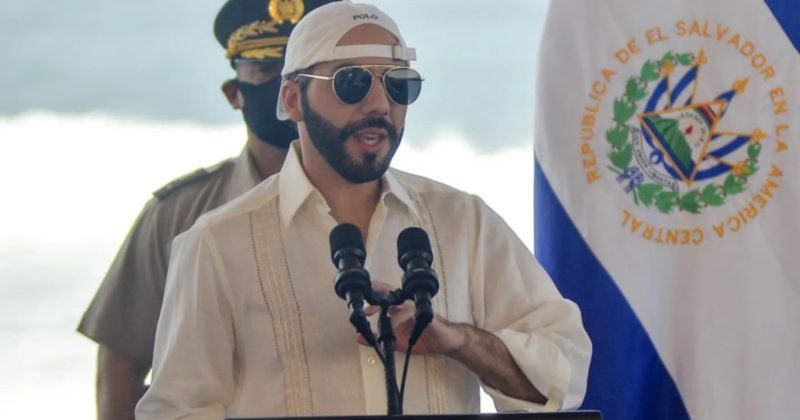The federal trial of Tornado Cash Co-founder Roman Storm is entering the end game, with closing arguments commencing and a verdict expected early August. Storm is accused of money laundering and sanctions violations. If found guilty, it could set a significant precedent for how United States courts treat creators of decentralized privacy-preserving technologies.
In August 2023, federal criminal charges were filed against the 34-year-old Russian expat and fellow Tornado Cash developer Roman Semenov by the U.S. Department of Justice (DOJ), which accused the pair of laundering more than $1 billion in criminal proceeds, as well as facilitating sanctions violations.
While Storm was taken into custody in the U.S., Semenov is still wanted by the Federal Bureau of Investigation (FBI) and believed to be in Russia, beyond the DOJ’s reach—resulting in Storm facing trial alone.
Background
Tornado Cash is a digital asset ‘mixer’ platform, co-founded in 2019 by Storm, Semenov, and Alexey Pertsev, a Russian national and resident in the Netherlands.
A digital asset mixer, or a tumbler, is a platform that mixes potentially identifiable digital asset funds with others, usually by pooling them, to obfuscate the fund’s original source.
Naturally, such platforms have become favored tools of terrorists, criminals, and money launderers, and as such, often find themselves on sanction lists, particularly in the U.S., prominent examples being Sinbad.io and ChipMixer.
On August 8, 2022, the Office of Foreign Assets Control (OFAC) of the U.S. Department of the Treasury bestowed this unenviable honor on Tornado Cash, sanctioning the platform along with any Ethereum address that interacts with it, making it illegal for U.S. citizens, residents, and companies to receive or send money through the mixer service.
The Treasury Department accused Tornado Cash of having aided criminal actors, including laundering more than $7 billion in digital assets, $455 million of which were believed to have been stolen in 2022 by the Lazarus Group, the sanctioned North Korean state-funded hacking organization.
A year after the platform was sanctioned, the DOJ filed charges against co-founders Storm and Semenov; Pertsev was tried, convicted, and eventually sentenced to 64 months in prison by a Dutch court in May 2024, for his part in Tornado Cash’s creation and operation.
Pre-trial
The case was assigned to U.S. District Court Judge Katherine Polk Failla, and ahead of the trial, there was the usual flurry of motions to determine what evidence would be permitted and what experts would give testimony.
At a pre-trial hearing in July of this year, Failla granted the defense’s motion to bar discussion of the August 2022 sanctions imposed on Tornado Cash by the Treasury Department’s OFAC. Failla reasoned that the trial was already too complicated for a jury without including a sanctions discussion, particularly since OFAC lifted the sanctions in March. This latter U-turn was perhaps no surprise, after the new vocally pro-crypto Secretary of the Treasury, Scott Bessent, was sworn in on January 28, 2025.
Failla also ruled that the trial wouldn’t hear testimony referring to the ‘Van Loon case,’ a civil suit filed by several Tornado Cash users who claimed OFAC had no right to apply sanctions on software. Last November, a federal appeals court ruled that OFAC couldn’t sanction Tornado Cash’s smart contracts, with the same court later ruling that smart contracts aren’t property. Thus, they’re beyond OFAC’s ability to sanction.
Finally, Failla also denied a motion to admit private messages from Storm expressing remorse over the misuse of Tornado Cash. The judge ruled that the communications were overly self-serving and not material to the jury’s evaluation of intent or conduct.
Opening arguments
The trial kicked off on July 14 in the Southern District of New York with jury selection, followed by opening arguments on July 15.
From the prosecution’s team, Kevin Mosley, Special Assistant U.S. Attorney, began by telling the jury that Storm created Tornado Cash with the primary motivation of enriching himself, even if that involved laundering “dirty money.”
As reported by Bitcoin Magazine, who were in attendance, Mosley argued that hundreds of millions of dollars’ worth of digital assets had been funneled through Tornado Cash, and that Storm, Semenov, and Pertsev could have made the platform less attractive to criminals, but chose not to.
He also pointed to how Tornado Cash had facilitated sanctions violations by allowing the Lazarus Group to launder money for North Korea. In this regard, the prosecution went on to suggest that Storm had as good as admitted guilt, citing texts he allegedly sent to his co-founders saying “Guys, we’re done for” when the news surfaced that the North Korean hackers had used Tornado Cash to launder the proceeds of their $600 million hack of Axie Infinity.
“The defendant was running and profiting from a giant washing machine for dirty money, and he knew it,” said Mosley, who added, “he even marketed Tornado Cash as a washing machine.”
This was in reference to a now-notorious incident where Storm wore a T-shirt with a washing machine and a Tornado Cash logo on it to a digital asset conference. The prosecutor promised the jury, “you will see a photo of the defendant wearing a T-shirt showing a washing machine with the Tornado Cash logo on it,” according to a report from Business Insider, covering the trial opening.
Mosley argued that Storm attempted to cover his tracks after the Lazarus Group was sanctioned by removing a single software control “switch” that could be used to shut off just one part of the washing machine.
“He did that so he could pretend the whole washing machine was out of his control,” suggested Mosley, who argued that, in fact, Storm was still “running the whole laundromat.”
The prosecutor added that “he chose to launder money time after time.”
Finally, Mosley told the Jury that Storm had attempted to “hide his actions” by “cashing out” using an account that wasn’t his own, and that they would see documents that attest to this.
After Mosely had finished, defense attorney Keri Curtis Axel, a partner at law firm Wayland LLP—representing Storm in the proceedings—gave her opening remarks.
She began by describing Storm as a hardworking immigrant with a talent for computer programming, who is nothing more than a hardworking privacy advocate that wrote some very useful code.
In a variation on the classic, ‘it’s not the gun, it’s the person who pulls the trigger‘ argument, Axel stated that “Roman had nothing to do with the hackers and scammers — he didn’t want them to use Tornado Cash.”
In defense of the platform, she added, “the overwhelming majority of people who used it were normal people using it for their own financial privacy, which is the purpose that Roman intended.”
After explaining to the jury how the Ethereum blockchain works and how Tornado Cash anonymizes transactions on the network, Axel stated that once the platform’s mixing pools were launched, Storm and his co-founders burned the keys to them, rendering the developers unable to have any control over what happened within the pools.
“The government’s case is about how Roman should have stopped hackers from using pools,” said the defense attorney, “but he couldn’t do this.”
On the awkward subject of Storm’s washing machine t-shirt, Axel said that it was “worn in poor taste” but that “it’s like a comic strip or a meme. It was a joke.”
The defense attorney rounded off her opening remarks by stating that Tornado Cash was simply a tool that both bad and good people used—it is not inherently bad in and of itself, therefore neither are its creators.
How the trial unfolded
After opening statements, the prosecution called its first witness, Hanfeng Lin, a victim of a crypto ‘pig butchering‘ scam.
Lin explained how a scammer convinced her to open a Crypto.com account, deposit a total of over $200,000 into it, and then buy “crypto” with the funds, before transferring that crypto to a shell company called NTU Capital, where Lin was able to view her portfolio. The funds were then allegedly stolen and put through Tornado Cash to make them untraceable.
Later in the trial, Storm’s legal team raised the prospect of a mistrial in relation to Lin’s testimony, arguing that there is no concrete evidence connecting the victim’s stolen digital assets to Tornado Cash, thus rendering her testimony prejudicial.
However, the prosecutors maintained that subsequent testimony from an IRS Criminal Investigation Special Agent, Stephan George, confirmed the funds were laundered through the mixing service after “a few hops,” which validates the inclusion of Lin’s testimony.
George reportedly said that Storm “[had] control” over funds after an account connected to Binance sent crypto to Tornado Cash smart contract addresses, based on communications between co-founders Storm, Pertsev, and Semenov.
Another witness for the prosecution was FBI Special Agent Joel DeCapua, who has been tracking crypto and virtual assets for the FBI for 15 years and testified that during certain periods of time, between September 1, 2020 and August 8, 2022, as much as 55% of the funds that moved through Tornado Cash were obtained through criminal activity, such as hacks. He also highlighted that over $1 billion in stolen funds had moved through Tornado Cash.
However, in cross-examination, the defense questioned the legitimacy and accuracy of some of the data cited by DeCapua and argued that only 10% of the funds that moved through Tornado Cash transactions during the time period in question were obtained via confirmed criminal activity.
When it came to the defense witnesses, on July 28 (day 11 of the trial), Dr. Matt Edman, co-founder and partner at Naxo—a digital forensics and investigations firm—took the stand.
Dr. Edman explained in detail the extent to which Tornado Cash was decentralized, highlighted the precautions Storm and his co-founders took to prevent bad actors from using the service, and called into question the validity of the analysis presented by some of the prosecution witnesses.
Based on one account, Dr. Edman was a particularly “strong witness” for the defense. However, the same observer also noted that the jury “looked a bit bored and maybe even overwhelmed” as the witness walked the court through a lot of technical jargon and its relevance.
At the end of Day 11, Tyler Alameida, cybersecurity expert at Coinbase, took the stand for the defense, to briefly share how he used Tornado Cash to maintain his privacy when he made an Ethereum donation to the Ukraine war fund.
July 29 saw the last of the defense team’s witnesses, including a brief testimony from investor and consultant Omid Malekan, who told the court that he used Tornado Cash to buy .ETH domain without exposing wallets from which he invests; Guy Wuollet of a16z Crypto, who testified that crime committed on the blockchain didn’t make the blockchain guilty, saying “if someone robbed a store, I wouldn’t say the store was used in crime”; and Dr. Matthew Green, one of the brains behind cryptocurrency Zcash, who laid out the basic principles of online encryption and privacy, and helped the defense make the argument that Tornado Cash is a parallel technology for money.
There were rumors that Storm himself may also take the stand; however, these were quashed on Tuesday by the defense team, who ended their witness testimony and stated that the Tornado Cash co-founder would not be called.
Closing statements from the prosecution and defense come on July 30, to be followed by the reading of the charges and jury deliberation. The subject matter of the trial—digital assets, blockchain, and money laundering—can be complex and technical, but that may not necessarily mean that the jury takes a longer time deliberating, so a verdict could be reached before the end of the week, if not the day.
Watch: How do you overcome fear when building a business?

















 English (US) ·
English (US) ·